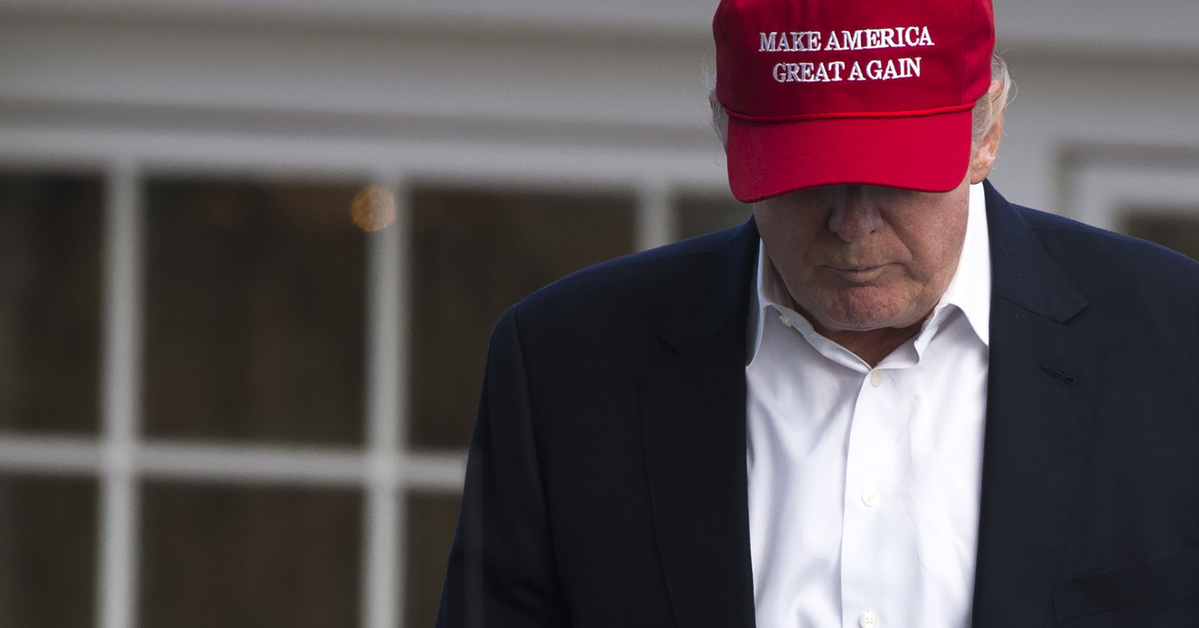
The first lawsuit has been filed against President Donald Trump‘s controversial national emergency declaration. Several Texas landowners and the Frontera Audobon Society say they’ll be adversely affected by construction for the president’s proposed wall on the U.S.-Mexico border.
Filed by consumer watchdog group Public Citizen in the U.S. District Court for the District of Columbia, the 19-page lawsuit is likely the first of many legal challenges to be brought against Trump over his efforts to use the executive branch’s congressionally-gifted national emergency powers in lieu of legislative methods to fund and construct the border wall.
The lawsuit accuses Trump of acting in violation of various federal laws and the U.S. Constitution by issuing an unlawful emergency declaration that “exceeds the limited authority delegated to the president to declare national emergencies and invoke specific statutory powers conferred by Congress to act in such an emergency.”
The filing flatly alleges that Trump declared an emergency to side-step Congress:
Rather than responding to an emergency requiring immediate action, the Declaration seeks to address a long-running disagreement between the President and Congress about whether to build a wall along the southwestern border and Congress’s refusal to appropriate funds for that purpose. However, under our Constitution, built on the principle of separation of powers, a disagreement between the President and Congress about how to spend money does not constitute an emergency authorizing unilateral executive action.
And this, the lawsuit claims, is illegal.
“The invocation of emergency powers and exercise of those powers, and the diversion of funds to build a wall, are thus contrary to law,” the petition continues.
Public Citizen’s attorneys also accused Trump of ginning up a false national emergency on the U.S.-Mexico border.
“Because no national emergency exists with respect to immigration across the southern border, the President’s invocation of emergency powers through the Declaration usurps legislative authority conferred by the Constitution on the Congress,” the lawsuit argues.
The power of the purse is also repeatedly invoked in the complaint.
“The president has no inherent authority to declare emergencies to override appropriations laws and other laws enacted by Congress; his emergency powers are defined and limited by statute,” the lawsuit notes. “Because the emergency declaration is unlawful, the President lacks statutory authority to direct the spending of funds for that purpose; the expenditure of monies from the United States Treasury for a border wall for which Congress has refused to appropriate funds violates Article I of the Constitution.”
A separate named defendant is Acting Secretary of Defense Patrick M. Shanahan.
The lawsuit argues that Shanahan has no statutory or constitutional authority to facilitate Trump’s request in accord with either 10 U.S.C. § 2808 or 10 U.S.C. § 284; statutes which authorize military construction in the event of a national emergency and which authorize the military to assist in anti-drug trafficking activities, respectively.
According to Public Citizen, “requirements for invocation” of military assistance have not been met on the U.S.-Mexico border and federal law does not explicitly allow for the military to construct a border wall.
The lawsuit seeks declaratory relief stating that Trump’s announcement of a national emergency was in violation of federal law and the U.S. Constitution and an injunction which would prohibit the Defense Department from using military funds to construct the president’s oft-promised border wall.
[image via Saul Loeb, AFP/Getty Images]